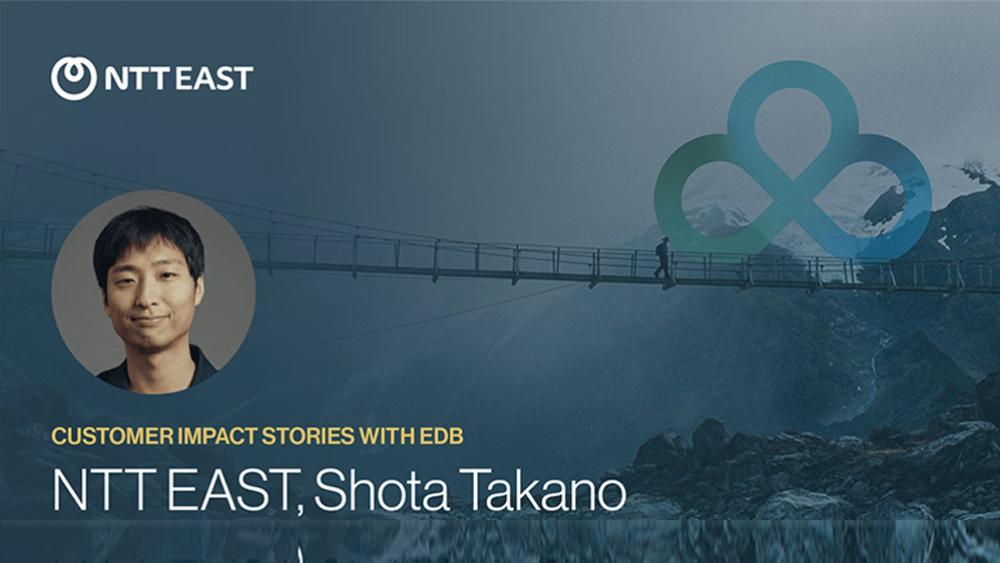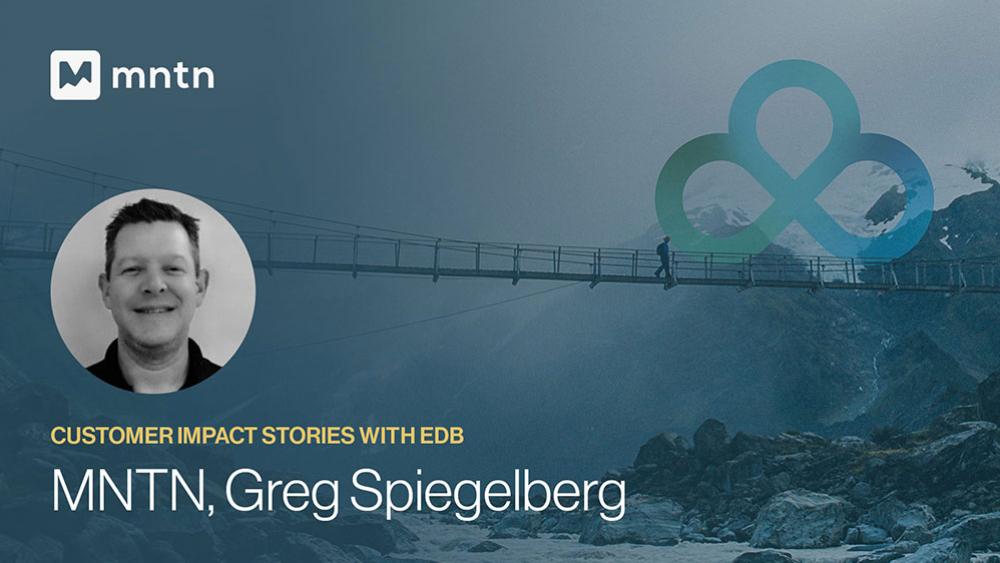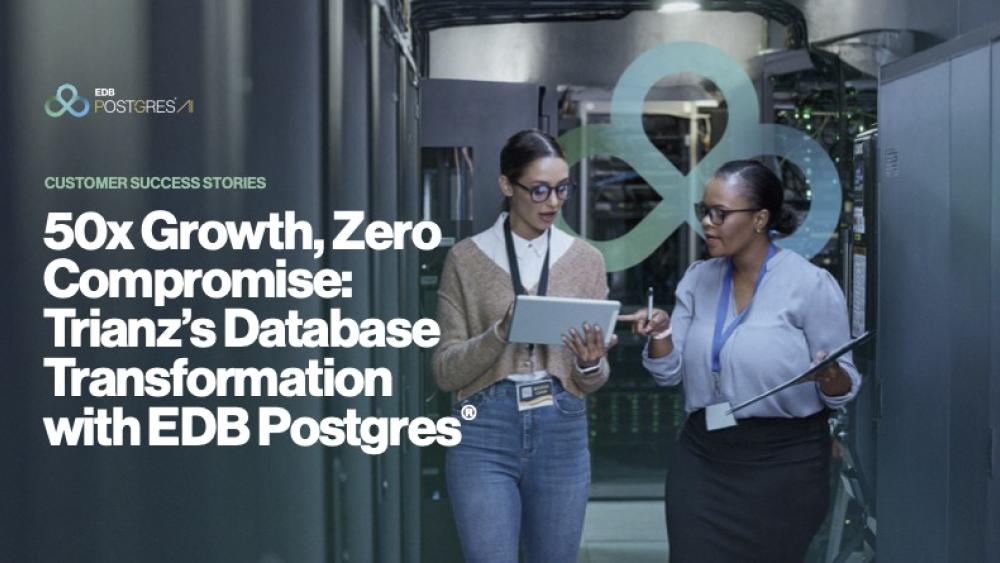Leading Online Education Platform Accomplishes a Vital Upgrade with Support from EDB
Key Takeaways
- Executed large-scale upgrade of Postgres from version 9.6.13 to version 14.1 with the guidance and support of EDB, ensuring continuity for vital Postgres databases
- Coordinated international teams to upgrade multiple environments overnight with near zero downtime
- Identified substantial upgrade roadblocks via EDB professional services
- Ensured high availability for dynamic online learning platform, providing resources and exams to medical students and faculty
- Saw immediate performance improvements as a result of the upgrade
Products
- EDB 14.1
- EDB Remote DBA (RDBA) Service
- EDB Professional Services to architect and configure a safe and reliable Backup and Recovery service using BARMAN
Industry
- Research/Analytics, Online Education
About
Headquartered in Amsterdam, this leading online education provider specializes in digital assets aimed at researchers and students, with a focus on healthcare. They’re dedicated to making these key assets accessible to universities around the world to improve the process of medical education, especially as learning and teaching enters a new, modern and increasingly diffuse era.
Challenge
As a global leader in online education for healthcare and healthcare education, the enterprise is responsible for hosting essential medical resources, including online exams.
“Our main product [for healthcare education] caters to nursing students and medical students,” explains the company’s Engineering Technical Lead. “They take online exams, and—when the pandemic hit—online testing became way more relevant because of remote learning. It has some pretty complex taxonomies, and contains things like grades and course plans.”
Student and faculty access to resources and services is critical. A database crash would cost both universities and the company itself. As a result, they require a Postgres database management system (DBMS) that is always on.
When it was announced that the Postgres version upon which the provider relied—9.6.13—would be reaching its end-of-life, they realized that support for this version of Postgres would be discontinued in November of 2021, leaving their databases in a vulnerable state. While they had already been planning to upgrade, this news made the project a major priority for the organization, and they were able to begin the process of upgrading in March of 2022.
When looking to upgrade the enterprise’s Postgres database, it made sense to start with the lower environments, before moving to the production database system itself. These portions of their architecture are managed by the company’s software team, which handles development and testing. As such, those would be the first areas where the upgrade would happen.
Solution
Before EDB brought 2ndQuadrant under its umbrella, the customer worked with that organization to manage their Postgres environment. Subsequently, EDB Remote Services assisted them with all their Postgres needs, including the upgrade. From the outset, a key goal was ensuring that they wouldn’t suffer excessive downtime.
Initial discussions focused on which version of Postgres the enterprise wanted to upgrade to. They initially suggested 9.6.22, but it quickly became clear that, if they were going to invest in an upgrade, moving to a version only nominally newer wouldn’t make much sense. As a result they selected Postgres 13.1.
Realizing the value of testing
“Normally before you make any major changes to a database—whether it’s an upgrade or any kind of enhancement—you want to start in the lower environments. That way you can test everything,” their Engineering Technical Lead reiterates.
All of these tests are designed to assemble a proof of concept (PoC) roadmap for the upgrade proper and to note errors, so they can be addressed before any major steps are taken.
It’s here that EDB prevented a major headache. “We kept running into roadblocks,” the customer explains. “We thought it would be quick and dirty, but we were experiencing so many unknowns.”
One was bigger than the rest, however.
The company’s underlying operating system runs on Linux, and—at the time of attempting their Postgres upgrade—they were using Linux AMI 1.0. Unfortunately, AMI 1.0 could not support Postgres 13.1.
As EDB worked with our customer to build out a step-by-step guide for their proof of concept, EDB picked up on this issue and discussed it with them. After some consideration, the organization opted to both upgrade their Linux to AMI 2.0, resulting in an unexpected benefit from the unplanned issue; they got to further modernize their system by upgrading to Postgres 14.1.
Essential guidance from EDB
“EDB worked closely with our team to document all of the steps we needed to take to avoid those roadblocks. We had great coordination to get all the steps communicated between teams and epics,” the company’s Engineering Technical Lead relays.
"Upgrade projects, in general, require considerable amounts of testing, team communication, and planning.” explains Jim Chanco, Technical Lead on EDB’s RDBA team.
With their problems identified and their roadmap laid out, they were ready to move from proof of concept to full-on upgrade for both their lower and production environments.
“That’s why it went so smoothly,” the organization says of EDB.
Results
For an enterprise like this one—whose databases serve not just their own applications but the efforts of students, researchers and more—support is a vital resource. With their upgrade, they were able to ensure that their most important Postgres environments continued to be supported by the RDBA team. But the benefits of their work with EDB throughout this project stretch beyond just that.
“For us, the schema upgrade was the most important measure of this project, and we weren’t disappointed,” the company tells EDB. “Not only have we seen performance improvements since the upgrade, but—working with EDB—the process was seamless. We were able to do this overnight, and have zero students log any tickets.”
“The professionalism, organization, and dedication from the customer’s side, coupled with the flexibility and expertise from EDB's RDBA team made this project successful. I am both honored and thrilled to have the opportunity to work with such an organization on this and future projects," adds Chanco.
Postgres has long been loved by organizations that require exceptional database performance and continued availability. As a result of their upgrade and EDB’s assistance, this online education platform is already experiencing more of why they chose Postgres in the first place; demonstrating that it’s an excellent choice as a System of Record.
Future
Paying it forward
As the company advances, they’ll continue to distinguish themselves as the premiere provider of health education. Their dedication to the students who use their resources is clear, and there are few organizations who can come close to what they provide to healthcare education.
The importance of support
“If I were to give any advice to someone looking to upgrade their Postgres database, I would say, ‘make sure you understand the requirements of whatever version you’re going to upgrade to, and how long it will take’,” the platform’s Technical Lead emphasizes.
We agree. Postgres is a powerful ally for enterprises whose business relies on dynamic databases that provide exceptional performance and high availability. Its diversity of workload support is a key reason why Postgres is the leading choice of Open Source Database Platforms, ranging from systems of record (as seen here) to systems of analysis, systems of engagement and more recently, systems of integration. But it doesn’t stop there.
With the help of a Postgres database specialist like EDB, you can harness deep insight and 24/7 support to make the most of your DBMS, and navigate projects like upgrades and enhancements with ease. Just like this industry leader, you can experience the full extent of what Postgres can do.



